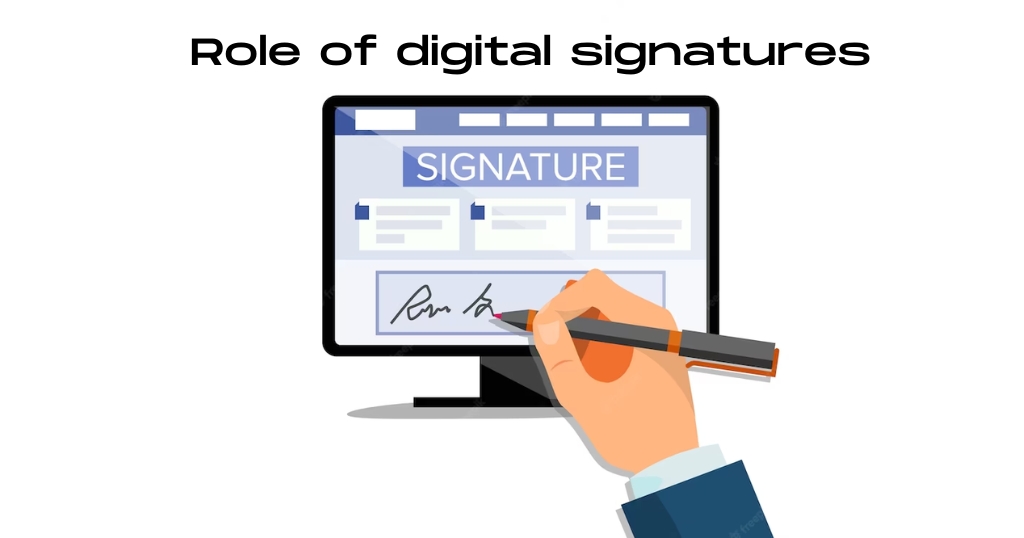In today’s digital age, the adoption of paperless documentation has become a crucial aspect of streamlining administrative processes. One of the key technologies empowering this transition is digital signatures. In India, the implementation of digital signatures has played a significant role in reducing administrative burdens and enabling efficient, secure, and legally binding transactions. This blog explores the role of digital signatures in facilitating paperless documentation in India, highlighting their benefits and impact across various sectors.
I. Understanding Digital Signatures:
Digital signatures are cryptographic techniques used to verify the authenticity and integrity of electronic documents, making them legally binding. Unlike physical signatures, digital signatures rely on unique digital certificates and private keys issued by trusted certification authorities. These signatures ensure that the content of a document remains unchanged and can be attributed to the specific signatory.
II. Legality and Compliance:
Digital signatures hold legal validity in India under the Information Technology Act, 2000, and the associated rules and regulations. The Ministry of Electronics and Information Technology (MeitY) has established the Controller of Certifying Authorities (CCA) to regulate and supervise certification authorities. By adopting digital signatures, individuals and organizations can comply with legal requirements while reducing the need for physical paperwork.
III. Paperless Documentation in Government Services:
Digital signatures have revolutionized administrative processes in the government sector. From tax filings to applying for government schemes and services, citizens can now digitally sign and submit documents, eliminating the need for physical visits and paperwork. This streamlined approach has significantly reduced the administrative burdens on both citizens and government agencies, improving efficiency and reducing processing times.
IV. Transforming the Banking Sector:
The banking sector in India has witnessed a significant transformation through the adoption of digital signatures. Opening bank accounts, applying for loans, and conducting financial transactions can now be done digitally, with documents securely signed and exchanged electronically. This has expedited processes, reduced paperwork, and improved customer experience while ensuring compliance with regulatory requirements.
Also Read – Benefits of using digital signatures in India for businesses and individuals
V. Streamlining the Legal System:
The legal sector has also benefited from the integration of digital signatures. Lawyers and legal professionals can digitally sign and file court documents, contracts, and agreements, saving time and resources. Electronic signatures ensure the integrity of legal documents and enable remote collaboration, making the legal system more efficient, accessible, and cost-effective.
VI. Impact on Healthcare:
Digital signatures have played a crucial role in transforming the healthcare industry in India. Electronic medical records (EMRs), prescriptions, and consent forms can now be digitally signed by doctors and patients, ensuring accuracy, security, and ease of access. This shift to paperless documentation has improved patient care coordination, reduced errors, and eliminated the need for physical storage of medical records.
VII. Enhancing Business Processes:
Digital signatures have become indispensable for businesses in India. They enable companies to streamline their workflows, such as contract management, procurement processes, and vendor agreements. With the ability to securely sign and share documents electronically, businesses can save time, reduce costs, and improve overall productivity.
VIII. Ensuring Security and Trust:
Digital signatures provide enhanced security and trust in document transactions. The cryptographic mechanisms used in digital signatures ensure the integrity and non-repudiation of electronically signed consumption in the manufacturing process. By embracing paperless documentation through digital signatures, India can contribute to conserving natural resources and reducing carbon emissions associated with paper production and transportation.
X. Overcoming Geographical Barriers:
Digital signatures have the power to overcome geographical barriers and enable seamless transactions across distances. Whether it’s signing contracts with international partners or conducting business with clients in remote locations, digital signatures eliminate the need for physical presence, thereby saving time and resources. This has opened up new avenues for collaboration and business opportunities in India’s globalized economy.
Conclusion:
Digital signatures have emerged as a game-changer in enabling paperless documentation and reducing administrative burdens in India. The legal validity, compliance with regulations, and enhanced security offered by digital signatures have transformed various sectors, including government services, banking, healthcare, and business processes. The benefits of adopting digital signatures extend beyond efficiency and convenience, positively impacting the environment and overcoming geographical barriers.
As India continues to advance its digital infrastructure and promote a digital-first approach, the role of digital signatures will only grow in importance. It is essential for individuals, organizations, and government bodies to embrace this technology and leverage its benefits to drive efficiency, transparency, and sustainability in administrative processes. With continued support and advancements in digital signature technologies, India can further enhance its position as a leader in digital transformation and pave the way for a paperless future.
Written by Karishma
